It’s a tearful but joyous moment when your baby birds (your children) finally fly out of the nest, move out of the family home, and start making it on their own. Or rather, it would be a tearful but joyous moment if it actually happened.
The reality is, however, that history appears to be repeating itself. In the West — Europe, the United States, Australia, etc. — more and more youngsters choose to live with their parents and move out of their family homes far later than usual. Just like in the days of yore.
More and more young people in the West choose to live with their parents instead of moving out

Image credits: DGLimages
Among the European countries where most ‘youngsters’ stay with their moms and dads the longest are Montenegro, Croatia, Slovakia, and Italy
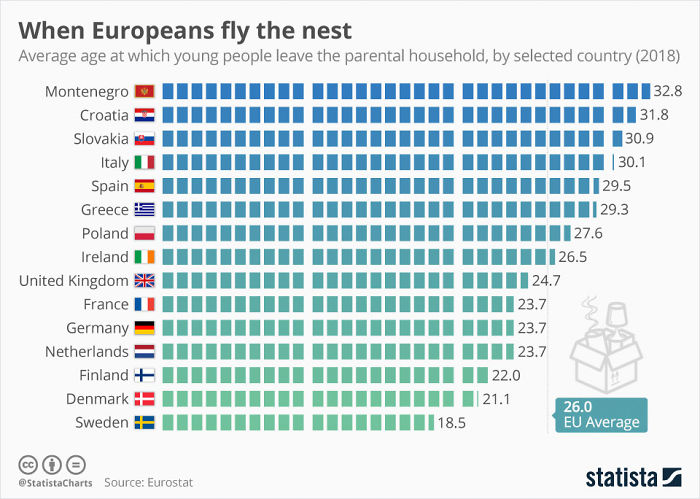
Image credits: Eurostat
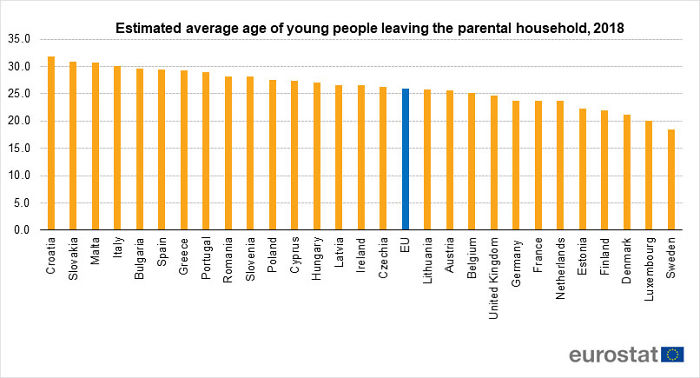
Image credits: Eurostat
According to Eurostat’s 2018 data, the average age across the European Union when young people leave their parents’ homes is more than 25 years old. In 2017, Eurostat showed that 35.3 percent of 25 to 34-year-old men were still living at home, compared to 21.7 percent of women of the same age group. The smallest percentage of young people living with their parents was found in Denmark (3.2 percent), Finland (4.7 percent), and Sweden (6 percent). While the highest was in Croatia (59.7 percent), Slovakia (57 percent), and Greece (56.3 percent).
Meanwhile, Statista’s 2018 data shows that the average age when ‘youngsters’ from Montenegro left their family homes was 32.8. Croatians are in second place with an average age of 31.8; Slovakians are third with 30.9; Italians come right after that with 30.1.
Europeans end up living in their family homes longer, just like decades ago
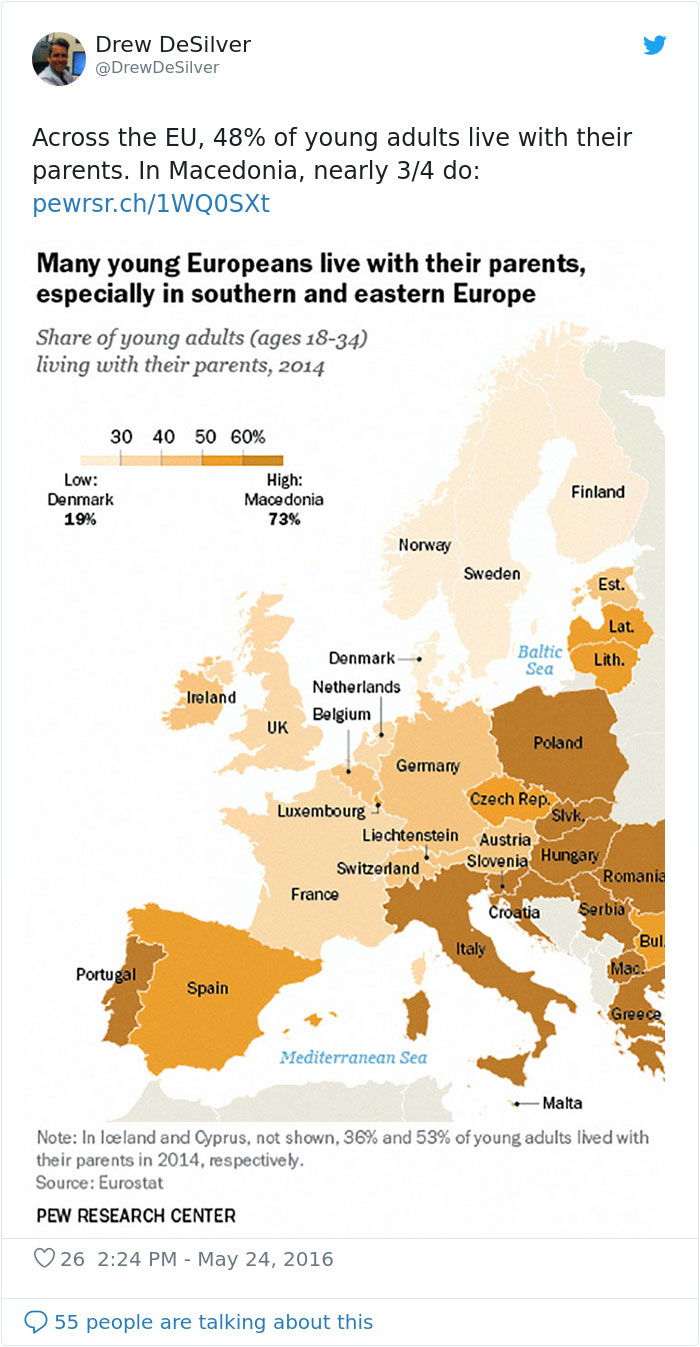
Image credits: DrewDeSilver
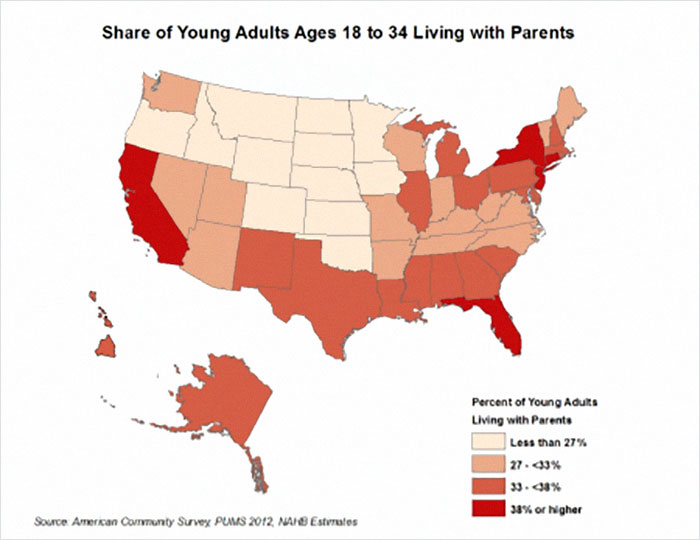
Image credits: eyeonhousing
Now, nobody’s judging the people still living with their parents, but by that age, people are less like baby birds and more like the gigantic harpy eagles that live in rainforests.
The Guardian writes that the thinktank Civitas found that the number of young people who opt to live with their parents has grown incredibly over the last 20+ years. In 1997, 19.48 percent of young Brits (20 to 34 years old) lived with their parents; by 2017, the number was 25.91 percent.
The situation is similar in the United States
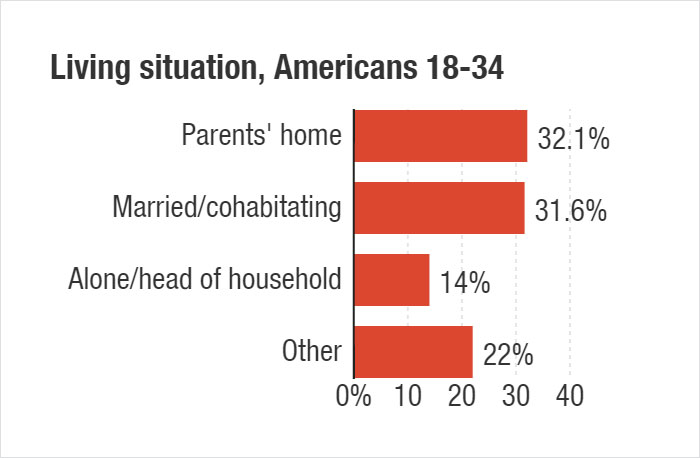
Image credits: Pew Research Center/NPR
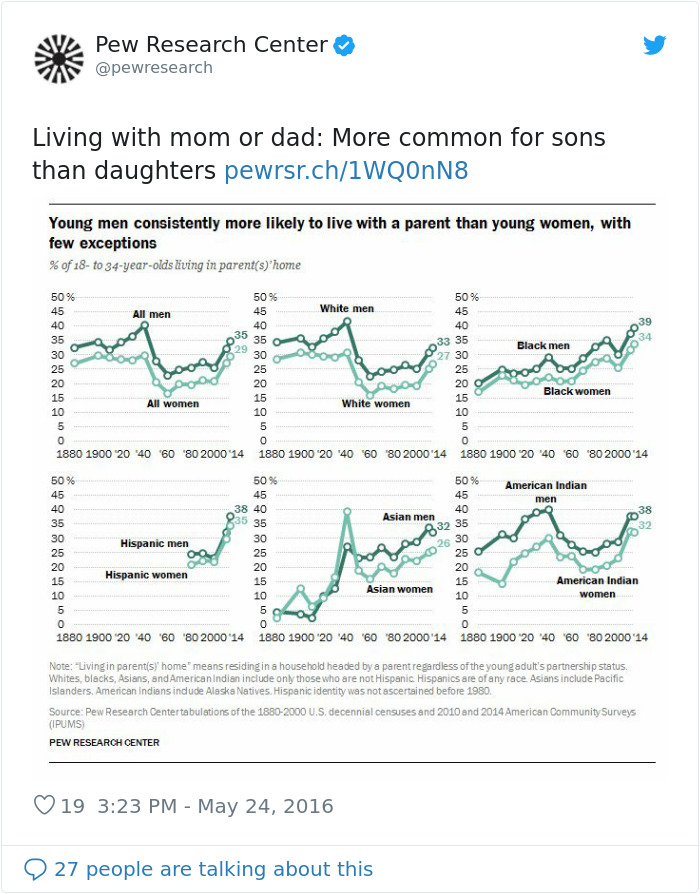
Image credits: pewresearch
The same is true ‘across the pond,’ in the United States. For example, NBC reports that according to the data that Census collected 1 in 4 Californians between 25 and 33 years of age are still living with their mother and father. Things are no different in Australia, where 43 percent of 20 to 24-year olds haven’t moved out yet, compared to 36 percent back in 1981.
There are serious reasons for this phenomenon, and it’s not just the ‘youngsters’ who have to shoulder the blame. The fact is, financial stability and property affordability both have a lot to do with the decision whether to stay with mom and dad or to fly out of the nest.
The reasons for staying with your parents can be financial, but there are others as well
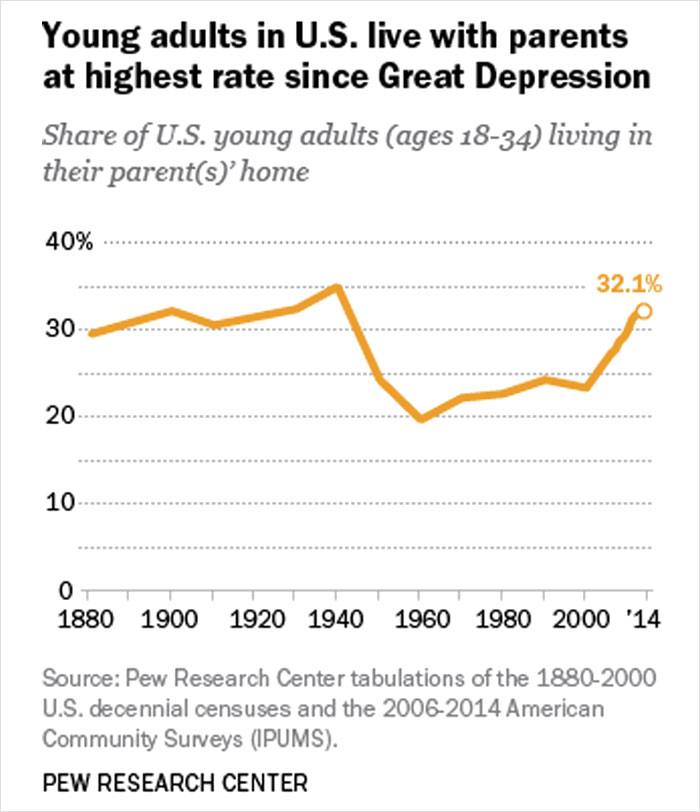
Image credits: Pew Research Center
According to The Economist, Brits have it bad: house prices have doubled over the last two decades, and a 27-year-old today is thus half as likely to become a home-owner than 15 years ago. The fact of the matter is, buying a house was far cheaper a generation ago. And even cheaper the further back you go.
Curbed writes that in the United States, in 1959, a teacher would make 5,200 dollars a year, while an average house in California cost 12,788 dollars. That’s an income of 44,493 dollars and a house price of 109,419 dollars when adjusted for today’s dollars. Nowadays, teachers living in San Francisco earn a median salary of 72,340 dollars, but buying a home in the city costs 1.61 million dollars.
There are other reasons why young people are moving out later in life, such as getting into serious relationships later and later in life, which means they’re likely to move out later as well. Focusing on careers and being able to postpone starting a family may have something to do with that. However, another possible explanation could be a change in values, resulting in young people caring more about their families than before.
This is how people reacted to young adults moving out of their parents’ homes later in life





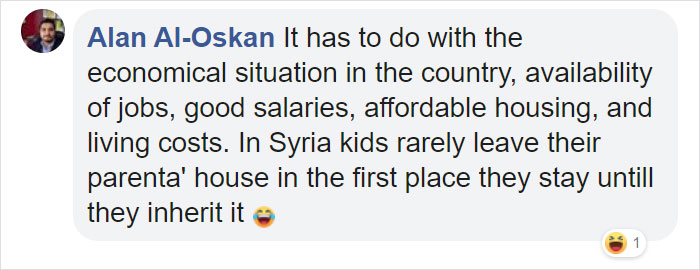







from Bored Panda https://ift.tt/2pAW931
via IFTTT